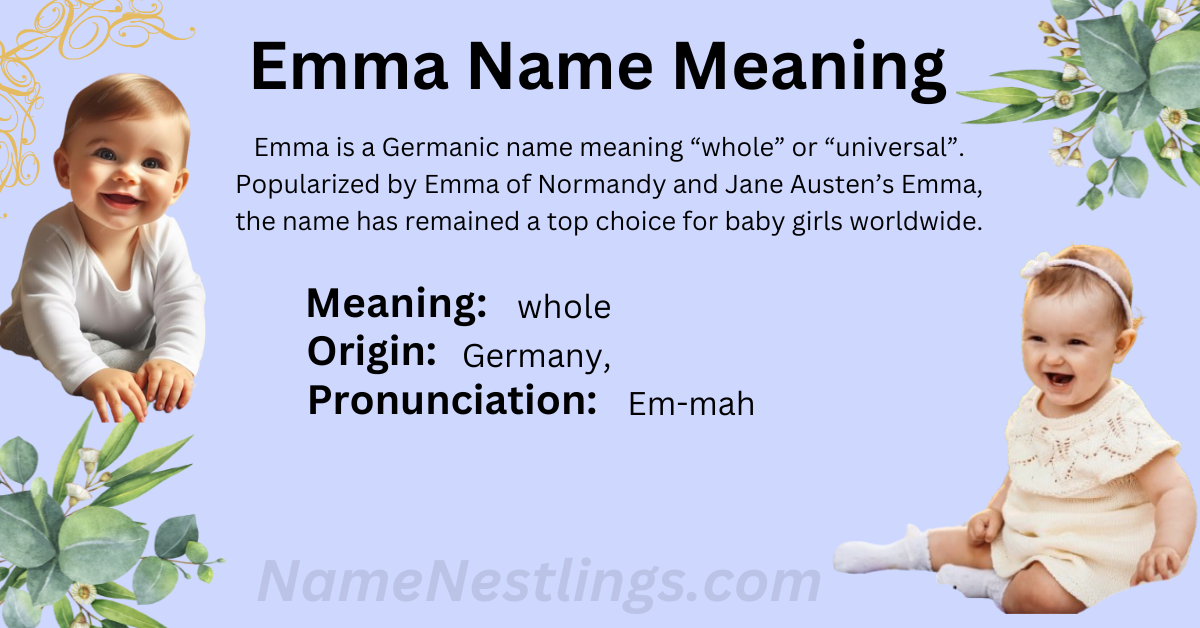Emma is a Germanic name meaning “whole” or “universal”. Popularized by Emma of Normandy and Jane Austen’s Emma, the name has remained a top choice for baby girls worldwide. Nicknames include Em and Emmy, symbolizing simplicity, grace, and timeless appeal.
Emma
- Meaning of the Name Emma. The name Emma is derived from the Germanic word “ermen,” meaning “whole” or “universal”. This name conveys completeness and is often associated with strong, independent women.
- Origin and Historical Significance. Emma came from Germany. She gained popularity in England through historical figures, like Emma of Normandy. She was a queen of England in the early 11th century. The name was also popularized by Jane Austen’s classic novel Emma.
- Pronunciation of Emma. Emma is pronounced “Em-mah.” It’s a simple, elegant sound that resonates across cultures.
- Popularity of Emma. The name Emma has remained a top choice for baby girls for over two decades. In the United States, Emma ranked as the #1 most popular girl’s name from 2014 to 2018. Pop culture icons partly fueled its modern fame. As of 2023, Emma is a top girls’ name.
- Famous People Named Emma. Emma Watson, famous for her role in Harry Potter. Emma Stone, Academy Award-winning actress. Emma Thompson, British actress known for Sense and Sensibility.
- Nicknames for Emma. Em, Emmy
- Middle Names and Sibling Name Ideas. Grace, Rose, Ethan, Olivia
- Emma in Different Cultures and Languages. Emma has a consistent meaning across languages. In many cultures, it is still associated with wholeness or universality.
- Emma Name Meaning in the Bible. The Bible does not mention it. But, the name’s meaning, “completeness,” has spiritual significance. It reflects ideas of fulfillment and grace.
- Fun Facts and Symbolism of Emma. The name Emma is in literature, movies, and royalty. It symbolizes strength, timelessness, and universal appeal. Characters like Emma Swan in Once Upon a Time and Emma Woodhouse in a Jane Austen novel have only added to its charm.
